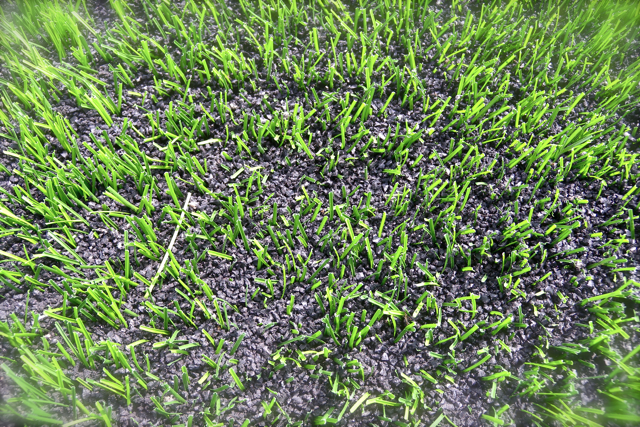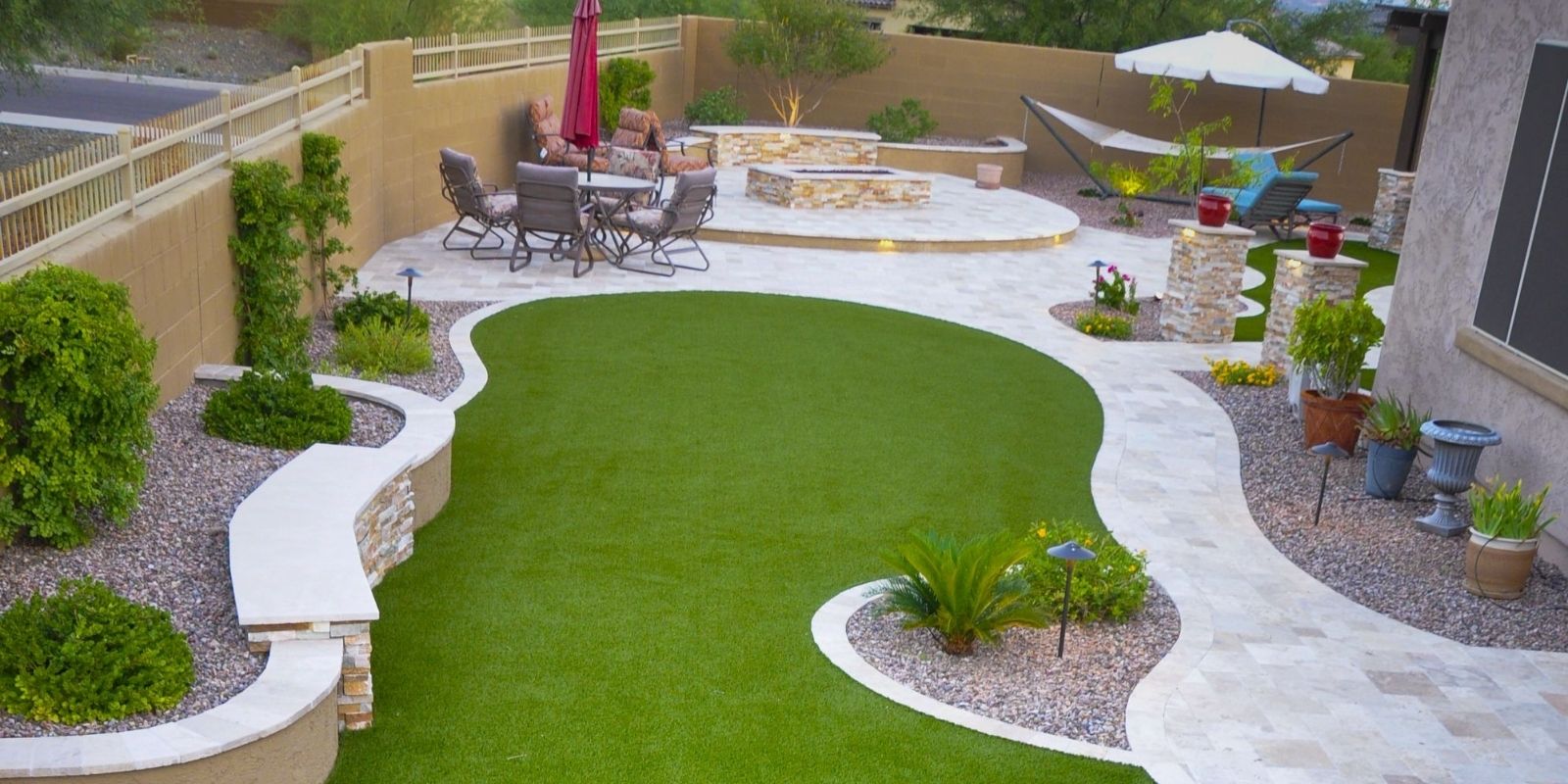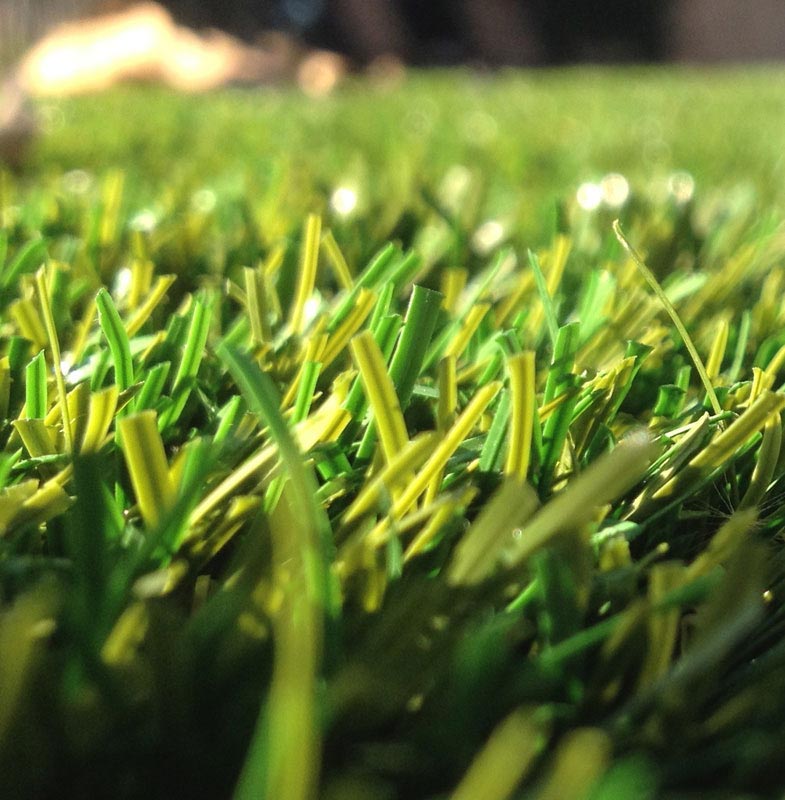Affordable Turf Installation Phoenix AZ for a Hassle-Free Lawn Solution
Affordable Turf Installation Phoenix AZ for a Hassle-Free Lawn Solution
Blog Article
Look Into the Environmental Benefits of Opting for Synthetic Grass Solutions
The fostering of synthetic turf options offers an engaging possibility to attend to pressing ecological obstacles. By considerably decreasing water usage and minimizing the application of harmful chemicals, these options not only promote lasting landscaping yet likewise secure neighborhood communities.
Water Conservation Benefits
One of the most substantial benefits of synthetic grass is its capacity to save water. In comparison, man-made turf does not need watering, substantially decreasing the overall need for water resources.
By eliminating the demand for routine watering, man-made lawn contributes to lasting landscape practices and assists reduce the ecological influence of extreme water intake. The preservation of water expands to the reduction of overflow, which can lead to dirt erosion and river air pollution.
In addition, the installation of synthetic grass permits homeowners and communities to designate water sources much more successfully, concentrating on necessary usages such as drinking water and agriculture. The shift in the direction of man-made grass not only promotes responsible water use however likewise aligns with more comprehensive environmental goals targeted at protecting all-natural resources.
As neighborhoods increasingly prioritize sustainability, the water conservation advantages of synthetic grass provide an engaging case for its adoption in industrial and household landscaping projects.
Minimized Chemical Usage
The change to synthetic grass considerably lowers the reliance on chemical therapies typically used in natural grass maintenance. Typical grass administration commonly entails the application of pesticides, herbicides, and plant foods to advertise growth and control bugs. These chemicals can posture dangers to human wellness, local wildlife, and the environment, contributing to soil and water contamination.
In contrast, synthetic grass removes the need for these dangerous materials. When set up, it needs marginal upkeep, primarily including regular cleaning and infrequent infill replenishment. This reduction in chemical usage not just profits the prompt atmosphere yet additionally adds to wider eco-friendly security. By lessening the release of synthetic compounds right into the environment, synthetic grass advertises much healthier soil and water systems.
Additionally, the lack of chemical overflow connected with synthetic grass setups aids secure neighborhood waterways from pollution, supporting aquatic life and maintaining biodiversity. Phoenix turf companies. As neighborhoods significantly prioritize sustainable practices, choosing synthetic grass presents a sensible solution that aligns with environmental conservation goals. Through this shift, home owners can take pleasure in lush eco-friendly spaces without endangering environmental health and wellness, leading the way for a much more lasting future
Lower Carbon Impact

Furthermore, the installation of synthetic grass can lead to considerable water preservation. Natural yards need substantial quantities of water for watering, which not only includes in the carbon impact related to water removal and treatment yet additionally pressures neighborhood water resources. On the other hand, synthetic grass requires very little maintenance, calling for no watering, consequently considerably decreasing water usage and its linked energy expenses.
Additionally, the durability of synthetic turf contributes to its decreased carbon impact. With a life expectancy of as much as 15 years or more, the need for frequent replacements is reduced, causing less waste and reduced energy consumption in production and taking care of standard turf options. Overall, synthetic grass provides a lasting alternative for ecologically conscious landscape design.
Habitat Preservation
Environment preservation is an important factor to consider in the discussion over landscaping choices, specifically when contrasting synthetic grass to natural turf. Natural grass yards frequently need extensive upkeep, including the use of fertilizers, pesticides, and herbicides, which can adversely impact neighborhood communities. These chemicals can seep right into the dirt and waterways, damaging indigenous flora and fauna and disrupting neighborhood habitats.
In comparison, man-made lawn provides click for more info a chance to lower the environmental impact of landscaping. By going with synthetic yard, property owners can decrease the disturbance of natural environments connected with standard grass treatment techniques. Synthetic grass gets rid of the requirement for damaging chemicals, thereby safeguarding neighboring wild animals and keeping the honesty of bordering ecosystems. Additionally, the installation of synthetic grass can result in the conversion of previous grass areas into more biodiverse landscapes, such as pollinator gardens or indigenous plant areas, which can support local wild animals.
Ultimately, the shift to fabricated lawn not only preserves water and lowers upkeep efforts however also fosters an extra unified connection in between human activities and the native environment, advertising habitat preservation while doing so.
Long-Term Sustainability
Long-term sustainability is a critical consider examining the advantages of fabricated lawn over traditional turf lawns. One of the most substantial advantages of synthetic grass is its sturdiness; it can last as much as 15-20 years with very little upkeep, whereas natural lawn needs regular reseeding and replacement. This durability decreases the demand for constant resources, such as water, plant foods, and chemicals, which are essential for keeping a healthy turf yard.
Furthermore, synthetic grass adds to a reduction in carbon discharges connected with yard treatment devices. Conventional grass often call for gas-powered lawn mowers, trimmers, and blowers, every one of which contribute to air pollution. Phoenix turf companies. In contrast, artificial lawn removes the requirement for such equipment, promoting a cleaner setting
Moreover, the manufacturing of synthetic grass progressively uses recycled materials, improving its sustainability profile. As producers adopt environmentally friendly techniques, the ecological footprint of synthetic grass continues to reduce.

Conclusion
The adoption of synthetic grass remedies provides significant ecological benefits, consisting of considerable water conservation, reduced reliance on unsafe chemicals, and a lower carbon impact. Furthermore, synthetic grass aids in maintaining other natural environments by reducing land disturbance and advertising long-term sustainability with making use of resilient products. Jointly, these aspects emphasize the capacity of synthetic grass to add favorably to ecological health and wellness and use a sensible choice to typical landscape design practices in an increasingly resource-conscious globe.
In contrast, fabricated lawn does not need watering, dramatically lowering the total need for water resources. By reducing the launch of artificial substances right into the ecological community, man-made lawn advertises much healthier dirt and water systems.
Additionally, the installation of man-made grass can result in considerable water preservation. In contrast, synthetic turf requires marginal maintenance, requiring no watering, consequently significantly lowering water use and its associated energy costs.

Report this page